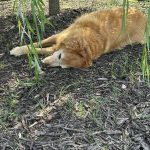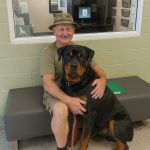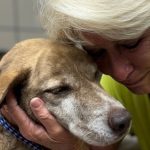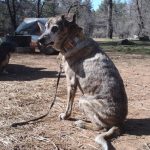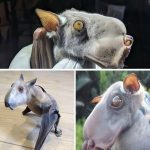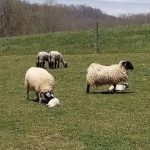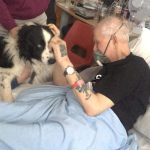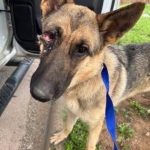Where Trust Sleeps: The Silent Bond Between Man and Elephant
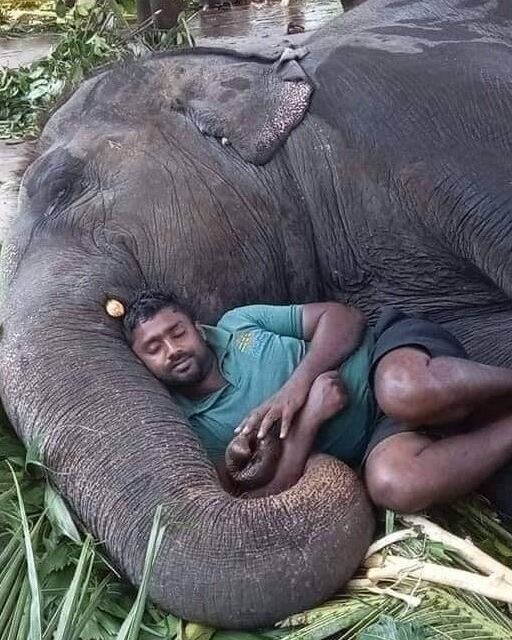
Where Trust Sleeps: The Silent Bond Between Man and Elephant
He hadn’t meant to fall asleep. But her breath was slow and steady, her trunk curled gently across his chest like a question already answered. And in that moment of stillness, he let go—for just a little while. The sun had dipped low behind the acacia trees, casting gold light through the dust, and everything felt suspended, hushed. There, on the dry grass, where fear once lived, trust had come to lie down. And somehow, without trying, they found rest—together.
He had been up before sunrise, like every morning since he arrived at the sanctuary. Feeding the orphans, cleaning their spaces, whispering calm when cries rose from tiny throats in the darkness. The young elephants often woke in panic, their dreams still haunted by the trauma of what they had lost. Their mothers—slain, stolen, vanished. He couldn’t give them back what was taken. But he could offer something else: presence.

He didn’t speak much in those early hours. Words didn’t mean much to grieving elephants. What mattered was rhythm—routine, warmth, a voice that never rose in anger. He learned to move slowly, to wait. Not to rush their healing, not to expect affection, not to demand trust. Only to be there.
She had been the most afraid of all. A tiny calf, no older than six months, found trembling beside her mother’s body. Her cries had lasted for days—hoarse, heart-wrenching, hopeless. No one could touch her, not even the other elephants. She didn’t eat unless someone left the milk and walked far away. She didn’t sleep unless she collapsed from exhaustion.
But something shifted on the twelfth day. Not with fanfare, not with drama. He had been sitting on the ground near her enclosure, quietly watching the others play, when he heard slow, careful steps behind him. She approached him like a ghost, one step at a time, ears twitching, eyes wide. Then, she sat—right beside him.

For a long while, they didn’t move. He didn’t look at her directly. She didn’t reach for him. But when she let her trunk stretch out and gently touch the edge of his arm, he didn’t flinch. He let it rest there, soft and tentative. And in that fragile moment, the walls began to fall.
Over the next weeks, their quiet moments grew. She started following him at a distance, never too close, but always near. When he cleaned the pen, she watched. When he sang under his breath, she stood behind the fence, swaying gently. One day, as he knelt to refill a water trough, she came behind him and placed her trunk on his back. He froze—not out of fear, but reverence. It was her way of saying, “I see you. I trust you.”
The other calves took notice. As she grew bolder, so did they. One by one, they began to inch closer to the humans who had come to care for them. They started accepting bottles from hands instead of buckets. They leaned into gentle touches. Grief still lived in their bones, but it wasn’t the only thing anymore.

Connection—true connection—had begun to bloom. And it had started with one tiny elephant and a man who had chosen not to fix her, but to sit with her in the brokenness. He understood that healing doesn’t always look like progress. Sometimes it looks like stillness. Like waiting. Like breathing together in silence.
He learned her rhythms—the way she liked her milk warm but not hot, the soft trumpet she made when she wanted company. She learned his, too—the sound of his footsteps, the hum of his favorite song, the way his hands moved with care. Their bond didn’t need words. It lived in gestures, in glances, in presence. It was rooted in patience and watered by time.
She grew stronger, more playful. Her eyes began to sparkle again. She would nudge him when she wanted attention, follow him like a shadow. Some days, when the sun was high and the world felt too big, she would wrap her trunk around his wrist and pull him to the shade, as if to say, “Let’s rest together.” And he would. Always.

People often came to the sanctuary expecting stories of heroism. They asked about rescues, about danger, about bravery. He would tell them, gently, that the most heroic thing anyone could do was to stay. To keep showing up. To be soft in a hard world. That’s what these elephants needed most.
They needed someone who didn’t flinch at their fear. Someone who didn’t walk away when they lashed out. Someone who saw the wounded animal behind the wild behavior and stayed anyway. Because love, in its purest form, is not loud. It is steady. It is patient. It is presence.
And so he gave them that. Day after day. He walked beside them as they learned to play again, learned to eat, to sleep, to trust. He celebrated each tiny milestone—a trunk lift, a splash in the mud, a nap taken beside another calf. And on the nights they cried out, he sat with them in the dark, humming until their sobs stilled.

The sanctuary was not just a place of safety. It was a place of becoming. For the elephants—and for him. He had come thinking he was there to help them heal. But slowly, quietly, they healed him too. His own scars, invisible but deep, began to soften under their gaze. He found in their presence something he hadn’t even known he was missing: peace.
It was in their slowness that he found clarity. In their stillness, he found strength. In their vulnerability, he remembered his own. And he realized that the world did not need more people trying to be strong all the time. It needed people brave enough to be tender. To feel deeply. To connect.
There were days when the work was hard—when calves didn’t make it, when the grief returned like a flood. But even then, he stayed. Not because he wasn’t hurting. But because love, real love, doesn’t leave when things get difficult. It stays. It endures. It holds on.
And through all of it, she remained by his side. No longer the terrified calf who had once stood trembling at a distance. But a bold, bright, beautiful being—full of spirit, full of joy. She would trumpet when he arrived each morning. She would nuzzle his side when he sat. She would lie beside him in the grass, just as she did that first day.

He still remembered that moment, as clear as sunlight: her breath slow and steady, her trunk wrapped around his chest like a question already answered. He hadn’t meant to fall asleep, but her presence had disarmed him, softened him, allowed him to rest. And in that moment of stillness, everything felt whole again.
Some say animals can’t feel love the way we do. He would tell you that’s wrong. Love is not limited to language. It’s not measured in logic. It’s known in the heart—in the way a broken soul reaches for another, and that other stays. It’s known in the silence. In the waiting. In the trust.
This was not a story of man saving animal. It was a story of two broken hearts finding each other in a world too quick to look away. Of learning that healing doesn’t always come in grand gestures. Sometimes it comes in quiet mornings, in shared naps, in soft touches. In knowing someone is there—and will keep being there.
And maybe, if we listened more—if we sat still longer—if we reached out not to fix, but to feel—we might remember what it means to truly connect. Not as masters of nature. But as fellow travelers. As beings, each with pain, each with hope, each capable of love. Maybe then, like them, we could begin to heal.

